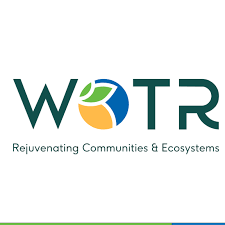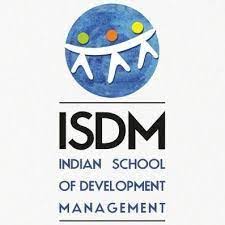
Website Jhpiego
Overview
Jhpiego is a non-profit global health leader and Johns Hopkins University affiliate that is saving lives, improving health, and transforming futures. We partner with governments, health experts, and local communities to build the skills and systems that guarantee a healthier future for women and families.
Jhpiego translates the best science and practices into moments of care that can mean the difference between life and death for women and families. The moment a woman gives birth; the moment a midwife helps a newborn to breathe. Through our partnerships, we are revolutionizing health care for the world’s most disadvantaged and vulnerable people. In India, Jhpiego works across various states in close collaboration with national and state governments, providing technical assistance in the areas of family planning, maternal and child health, strengthening human resources for health, and non-communicable diseases. These programs are funded by USAID, the Bill & Melinda Gates Foundation, the David & Lucile Packard Foundation, the Children’s Investment Fund Foundation (CIFF), MSD for Mothers, and other anonymous donors.
Jhpiego is seeking highly motivated State Program Officers based in various states for its USAID-funded RISE project to coordinate efforts in tackling the growing challenge of Zoonoses and AMR. The incumbent will be responsible for leading a multidisciplinary team, coordinating and executing a range of activities aimed at enhancing health security, addressing zoonotic threats, and combatting AMR. This includes providing technical leadership, team management, partnership building, and ensuring effective communication with relevant stakeholders. The position will report to the Deputy Chief of Party.
Responsibilities
- Project Leadership, Technical Expertise, and Team Management:Provide strategic leadership in the implementation of project activities, ensuring alignment with the project’s goals and objectives.
- Design and execute coordinated response frameworks outlining roles, responsibilities, and coordination mechanisms among various sectors.
- Manage a diverse team of professionals, including technical experts and program coordinators.
- Foster a collaborative and supportive team environment, promoting learning and professional growth.
- Provide mentorship and guidance to team members, ensuring the quality and effectiveness of their contributions.
- Zoonoses, AMR, and Lab Quality Management:Strengthen the Zoonotic Disease reporting system under the guidance of the National Center for Disease Control (NCDC).
- Support the development and implementation of state-level AMR action plans and antimicrobial stewardship programs.
- Enhance community-level mechanisms for zoonotic threat preparedness through community outreach initiatives.
- Implement the lab quality management system in the identified laboratories in collaboration with the NCDC, DAHD, and other relevant partners.
- Capacity Building, Training and Workshops:Develop various knowledge resources for the project implementation in alignment with NCDC’s priorities and project objectives.
- Lead the organization of joint training programs aimed at fostering cross-sectoral understanding and collaboration among stakeholders.
- Organize joint training programs for various cadres of healthcare workers as per the programmatic needs.
- Facilitate multi-sectoral coordination workshops in assigned states, promoting effective collaboration in zoonotic disease management.
- Utilize technology for delivering capacity-building initiatives, including webinars and e-learning platforms.
- Partnership Building, Collaboration, and Communication:Establish and nurture partnerships with government agencies, healthcare institutions, research organizations, and other stakeholders.
- Collaborate with intersectoral committees or task forces to facilitate cross-sectoral understanding and joint planning.
- Work closely with regional coordinators and sentinel sites to create an interconnected learning network for knowledge sharing.
- Foster regular communication, collaboration, and technical support within the network through a hub and spoke model.
- Support the dissemination of communication materials and guidelines related to biosafety/security, zoonoses, and AMR surveillance.
- Support the state counterparts of the Center for One Health to implement/disseminate the operational guidelines and knowledge resources for effective community engagement as per the priorities.
- Assist the state in developing an implementation plan and reach-out activities as per the approved community engagement strategy and initiatives related to zoonotic disease threats.
- Data Integration Collaboration, Monitoring, Evaluation, and Reporting:Collaborate under the guidance of the Zoonotic Division to enhance the zoonotic disease reporting system by incorporating comprehensive human, animal, wildlife, and climate data integration.
- Monitor project progress, ensuring activities are on track and milestones are achieved.
- Conduct regular assessments to identify gaps and areas for improvement, implementing corrective actions as necessary.
- Prepare comprehensive reports detailing project achievements, challenges, and recommendations for further enhancement.
- Collaborative Mechanisms Activation:Support the establishment of formal collaboration mechanisms such as intersectoral committees or task forces at the state level.
- Support the dissemination of communication materials and guidelines to raise awareness among healthcare professionals about biosafety/security, zoonoses, and AMR surveillance.
- Assist states in the development of Risk Communication and Community Engagement (RCCE) plans that integrate infodemic management.
- Documentation and Reporting:Assist in maintaining accurate documentation of project activities and outcomes, contributing to regular progress reporting.
- MiscellaneousAny tasks assigned by the supervisor or the head of the department of the Center for One Health
Required Qualifications
- Graduate degree in medical sciences (MBBS) is a must. MD (Community Medicine)/MPH (Master of Public Health) will be preferable.
- A minimum of 5 years of progressive experience in public health program management, including team leadership and technical expertise in areas such as health security, zoonoses, and AMR.
- Proven ability to manage and lead teams effectively, fostering a collaborative and productive work environment.
- Demonstrated experience in building partnerships and collaborating with a range of stakeholders.
- Strong analytical skills, with the ability to identify challenges and implement effective solutions.
- Excellent communication, coordination, and facilitation skills.
- Proficiency in using technology for training, communication, and capacity-building initiatives.
- Good communication and interpersonal skills, with the ability to engage and collaborate with diverse stakeholders.
- Proficiency in relevant computer software and data analysis tools.
- Familiarity with the Indian public health system, newer initiatives in the health sector, and relevant government policies/ strategies particularly the National Health Mission, and Ayushman Bharat.
- Ability and willingness to travel for workshops and coordination activities.
Preferred Qualifications
Jhpiego is an equal opportunity employer and offers highly dynamic and enabling work environment.
Jhpiego offers competitive salaries and a comprehensive employee benefits package.
Women candidates are encouraged to apply.
To apply for this job please visit jobs-jhpiego.icims.com.





